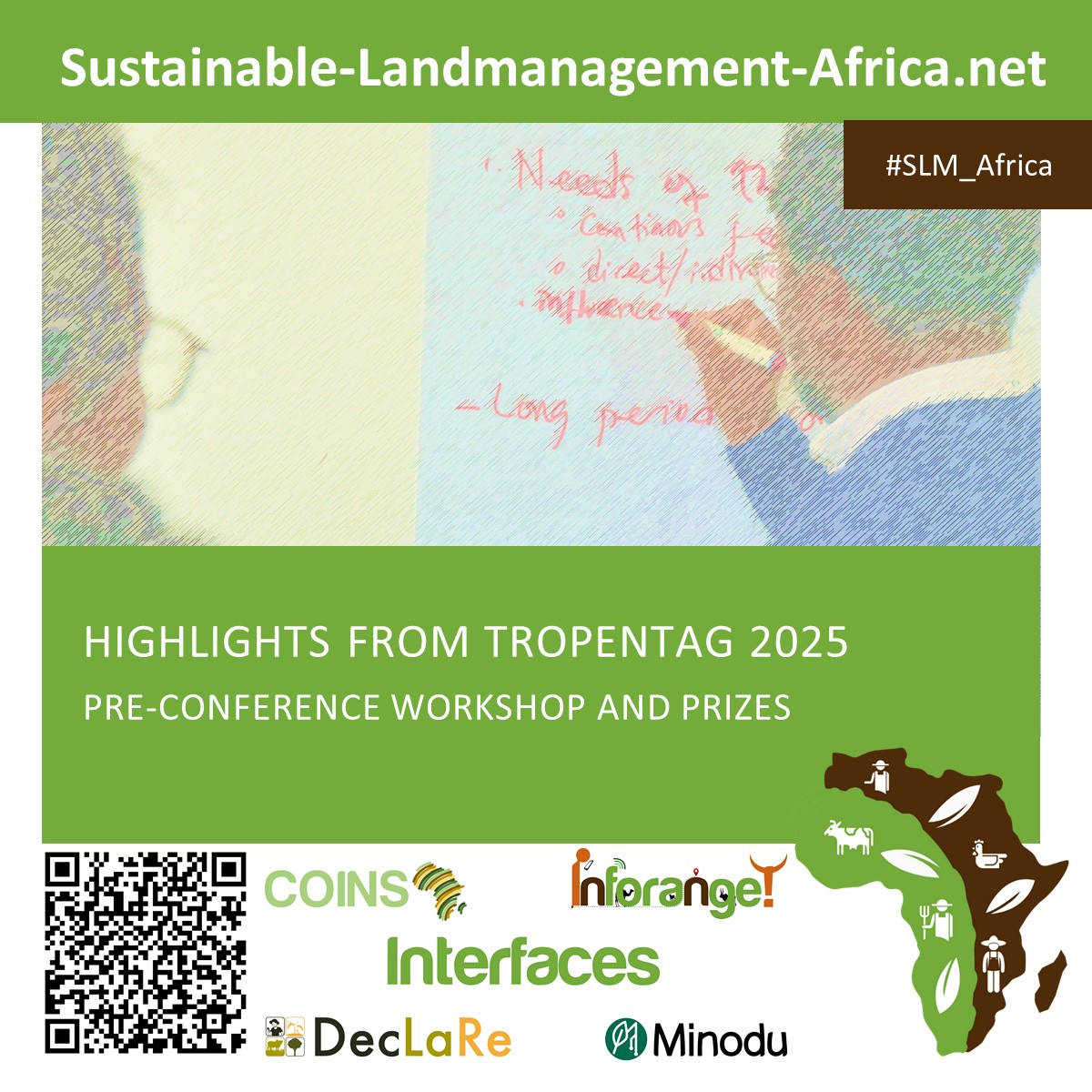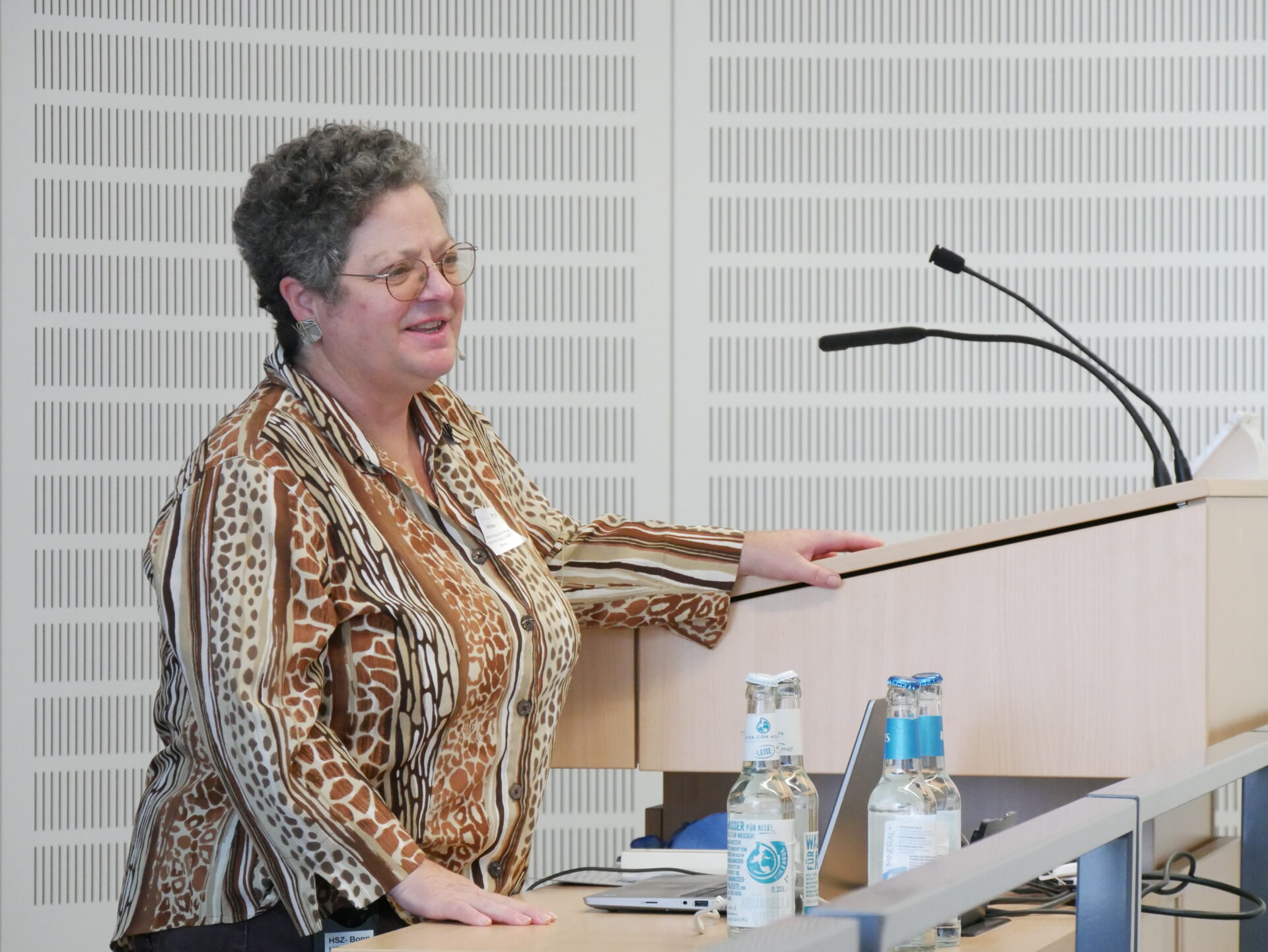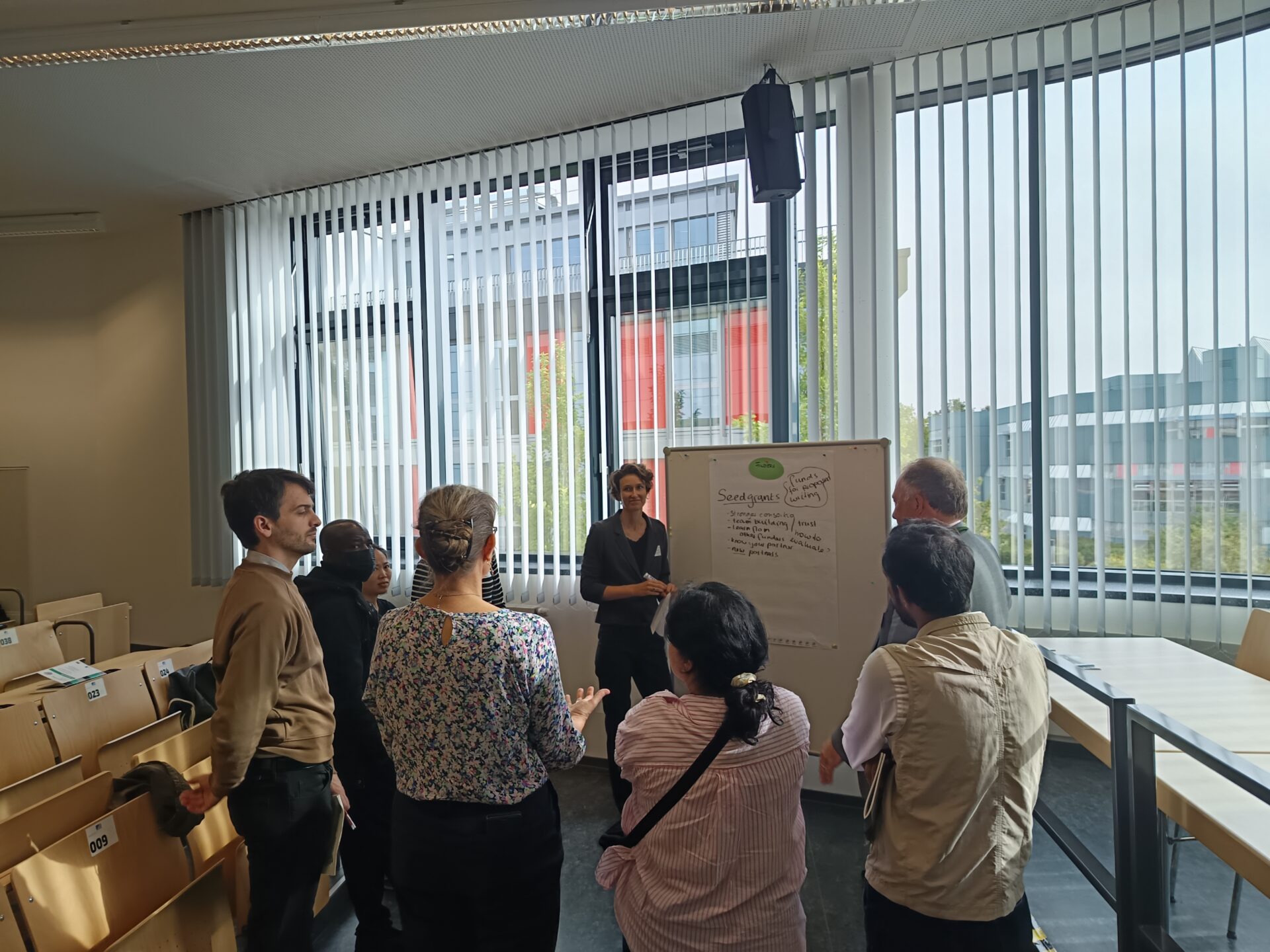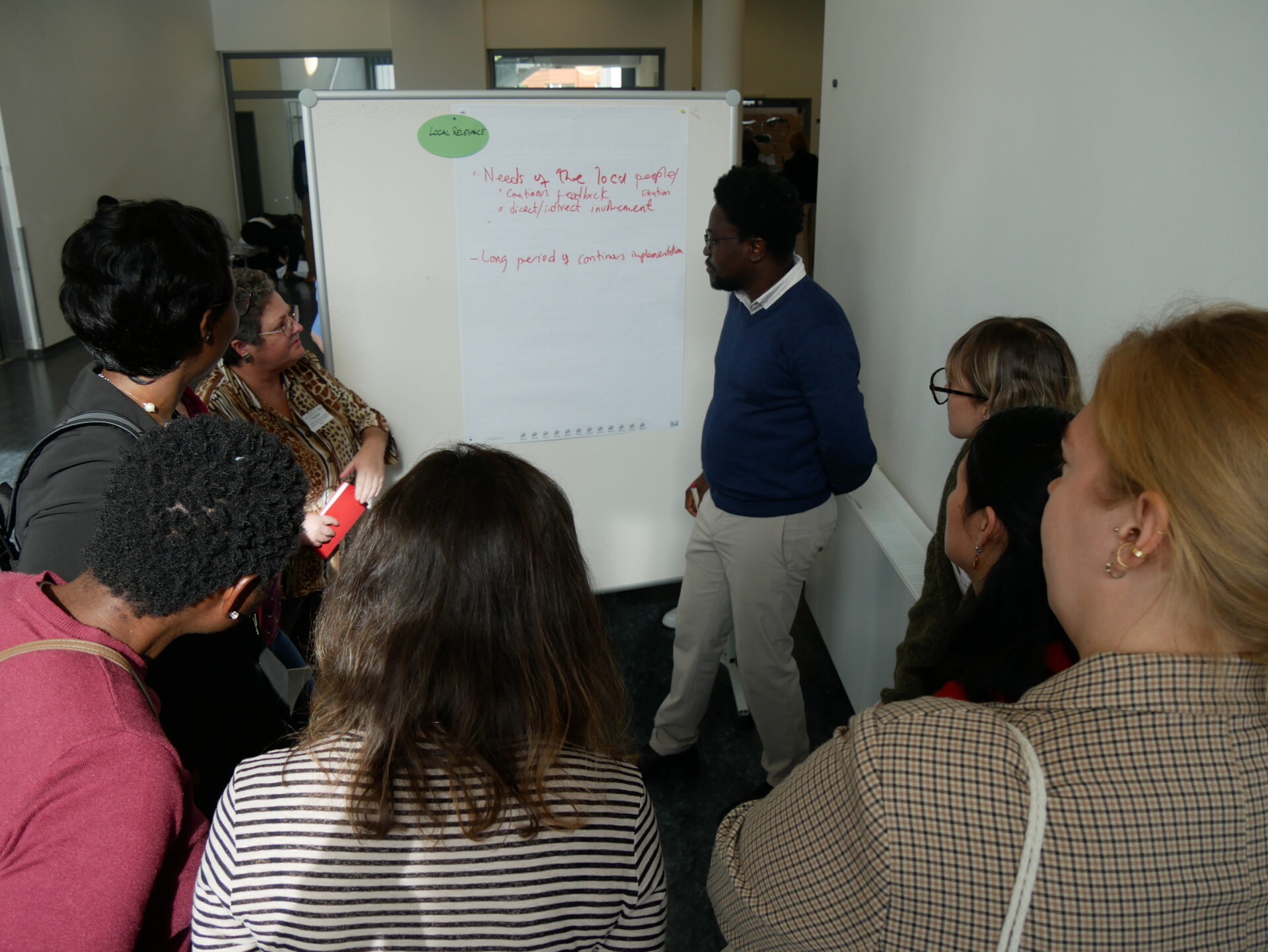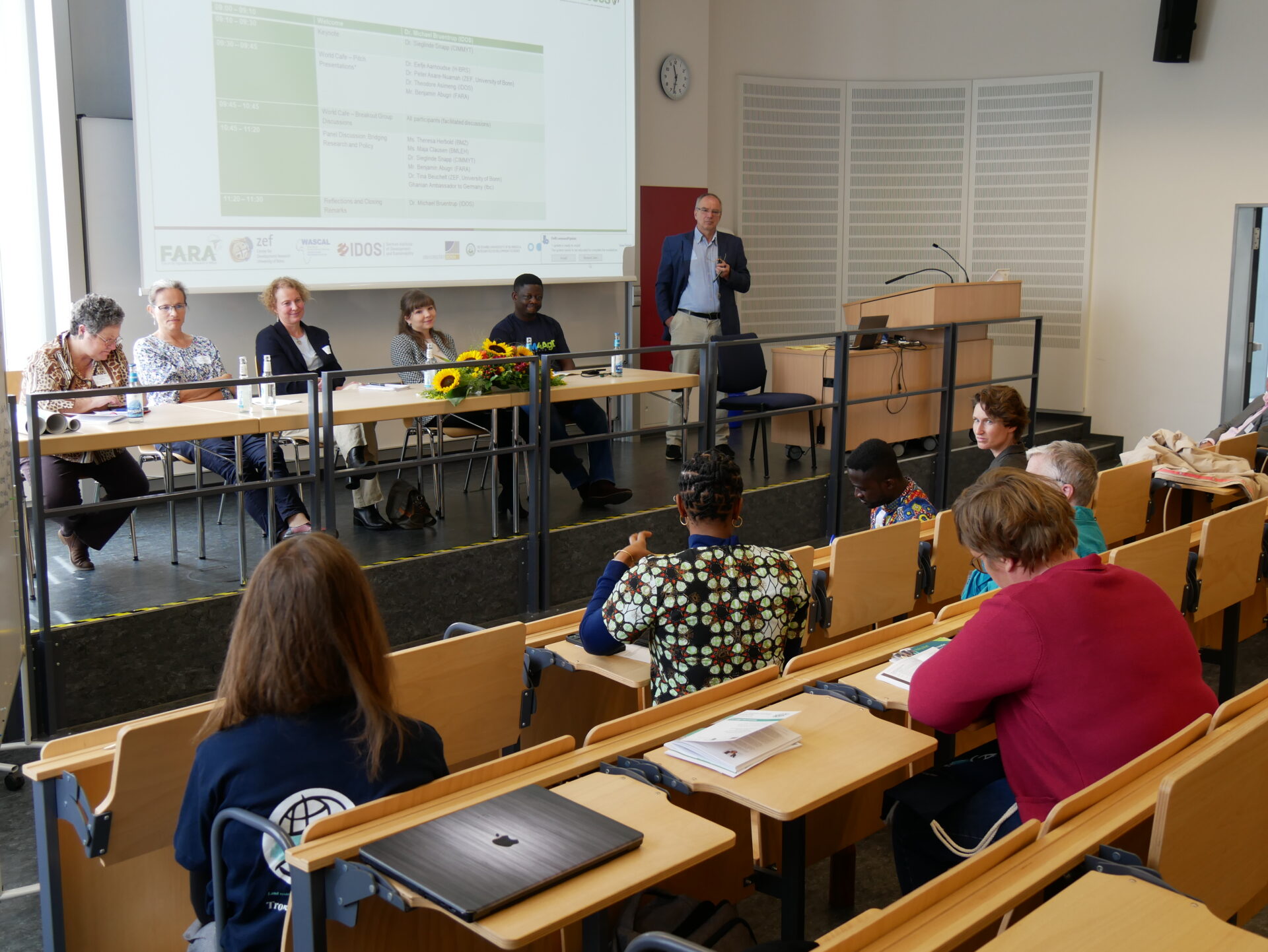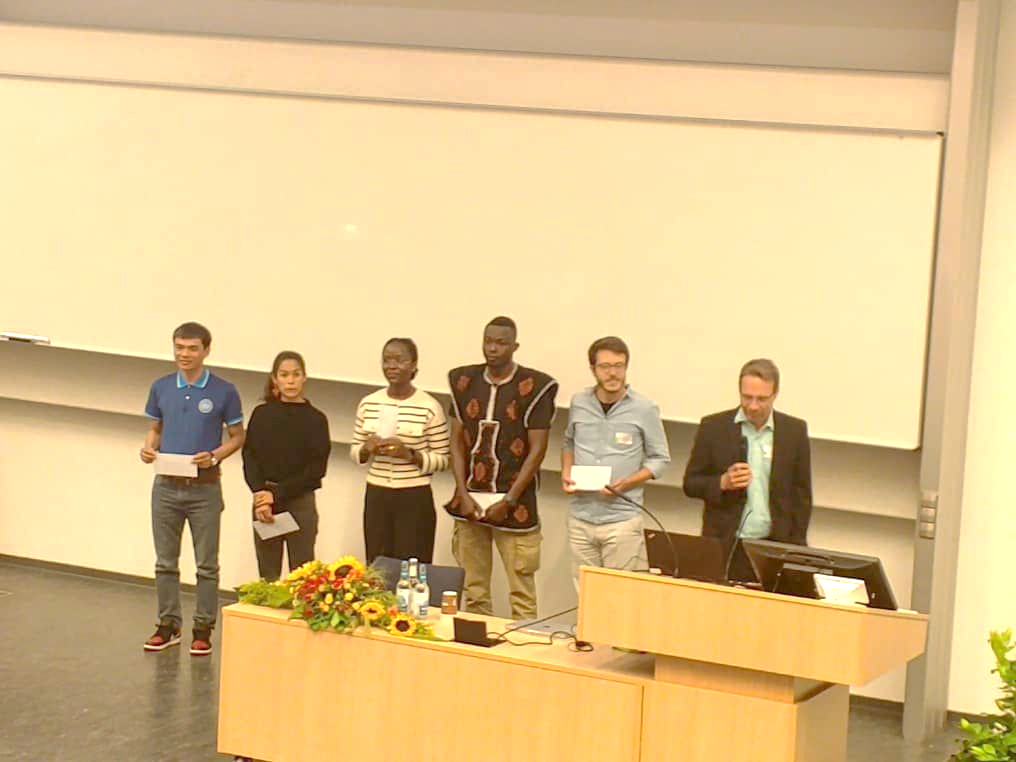World Café – The role of funders in designing agricultural research programmes for impact
Dr Eefje Aarnoudse from the Hochschule Bonn-Rhein-Sieg hosted the World Café on “The Role of Funders in Designing Agricultural Research Programmes for Impact: Exploring how funding priorities, instruments, and partnerships can be shaped to better support science-policy linkages and long-term developmental impact”.
One main topic from the discussion was that of seed grants—funds for proposal writing. Participants indicated this can lead to stronger consortia as it allows for team building and trust development from an early stage, leading to knowing ones partner better and even finding new partners. Furthermore, the research consortia can already familiarise themselves with the farmer communities from the onset. Funders can learn from each other also regarding on how to evaluate the seed grants. A second theme of this World Café was that in research projects funds should be made available for praxis-partners and research-practice facilitators. Here there is a risk of micro-management and a greater administrative effort being required, especially when fixed budget proportions are set. Nevertheless, participants remarked that this can be eased by research and implementation funders cooperating with one another.
Participants also exchanged their thoughts and experiences regarding selection criteria, in particular that reviewers should be from different disciplines, countries and gender, however it is generally hard to find good reviewers. Conversely, that a lot can be learned from feedback from a proposal being rejected. It was argued that feedback is limited due to workload.
Finally, participants discussed project duration. For example to not only focus on the research phase but to start the cycle with project proposals and to extend the project duration to include project implementation and scaling, thus for projects to run for longer than three years. This often clashes with political cycles and consequently a funders mandate changing and increasing competition over resources. With a shorter duration and limited resources, researchers are subject to short-term contracts and resulting changing team composition is questioned.
A potential solution to extend project duration could be the stronger use of seed grants as well as follow up calls for research implementation and scaling.
Related reading to this World Café can be found here.
World Café – Embedding participation in research-to-policy pathways
Dr Peter Asare-Nuamah from the Center of Development Studies (ZEF, Uni Bonn), hosted the World Café on “Embedding Participation in Research-to-Policy Pathways: Examining inclusive and participatory approaches that enable co-creation with policymakers, practitioners, and communities to enhance relevance and uptake of research findings”.
The first question raised in this World Café was how to attract diverse knowledge sources with participants stating that communication flows should be established between scientists and stakeholders and that the interests of all stakeholders should be known and included from the onset. Specifically regarding farmers, it was felt that strong relationships had to be built, including with NGOs and CSOs representing them, and part of this relationship is to be underpinned by scientists changing their mentality that farmers have prerequisite knowledge to draw from.
Once diverse sources of knowledge have been identified and included, the discussion turned to how co-creation methodologies and approaches can be implemented. Trust building and relationships were stressed as essential elements, with continuous dialogue with stakeholders, incorporating innovative methods such as future visioning by for example paintings. Furthermore, context-specific strategies should be adopted by selecting friendly and flexible environments for stakeholder engagements, whereby barriers have been identified and addressed.
To ensure sustainability of co-creation, participants shared ideas such as providing pre-support for emerging scholars to engage effectively with stakeholders and to build stronger collaboration between social and natural scientist.
Related reading to this World Café can be found here.
World Café – Adaptative project implementation for local relevance
Dr Theodore Asimeng from the German Institute of Development and Sustainability (IDOS) hosted the World Café on “Adaptive Project Implementation for Local Relevance: Discussing the importance of flexibility in project design and implementation to accommodate context-specific needs, with a focus on researchers’ and farmers’ perspectives”.
Front and centre to this World Café is understanding the needs of local people and their unique situation. This can be done through collaborative processes. Related to collaborative practices is the duration of projects, as longer project cycles allow for proper learning and improved understanding between researchers, farmers and other stakeholders. Understanding of the current policies and finding opportunities to build on those through established institutions was another highlight of this session. The target audiences or stakeholders of the project at hand are to be clearly visible to allow for a long period of continuous feedback for implementation. Two-way communication was highlighted as being important with a certain amount of flexibility within the project to adapt. Here funders are to be informed early about any change in implementation. This further allows for proper monitoring and timely adjustment.
Related reading to this World Café can be found here.
World Café – Strengthening knowledge exchange and Communities of Practice
Mr. Benjamin Abugri from the Forum for Agricultural Research in Africa (FARA) hosted the World Café on “Strengthening Knowledge Exchange and Communities of Practice: Identifying effective strategies for managing, sharing, and applying knowledge within and across institutions, and cultivating networks that support sustained policy engagement and learning”.
A core theme in this discussion was centred on how African research and policy institutions can embed knowledge management and exchange into their core strategies, rather than treating them as project add-ons? Participants felt that there were many different sharing platforms that stand in isolation from each other and questioned how the various channels for knowledge sharing, targeted to different audiences, can best be used.
Concretely the group asked whom a farmer is and how a professional farmer can be identified and how to make people interested in farming. This follows from how to get information to the farmer in their own language, including indigenous knowledge, use of photos and infographics rather than reliance on too many words.
Involvement of both researchers and policy makers in the initial stages of knowledge exchange are crucial as well as an analysis of stakeholders for targeted knowledge exchange. Furthermore, good practices for adoption and adaptation are to be documented and made available at various levels.
Related reading to this World Café can be found here.
